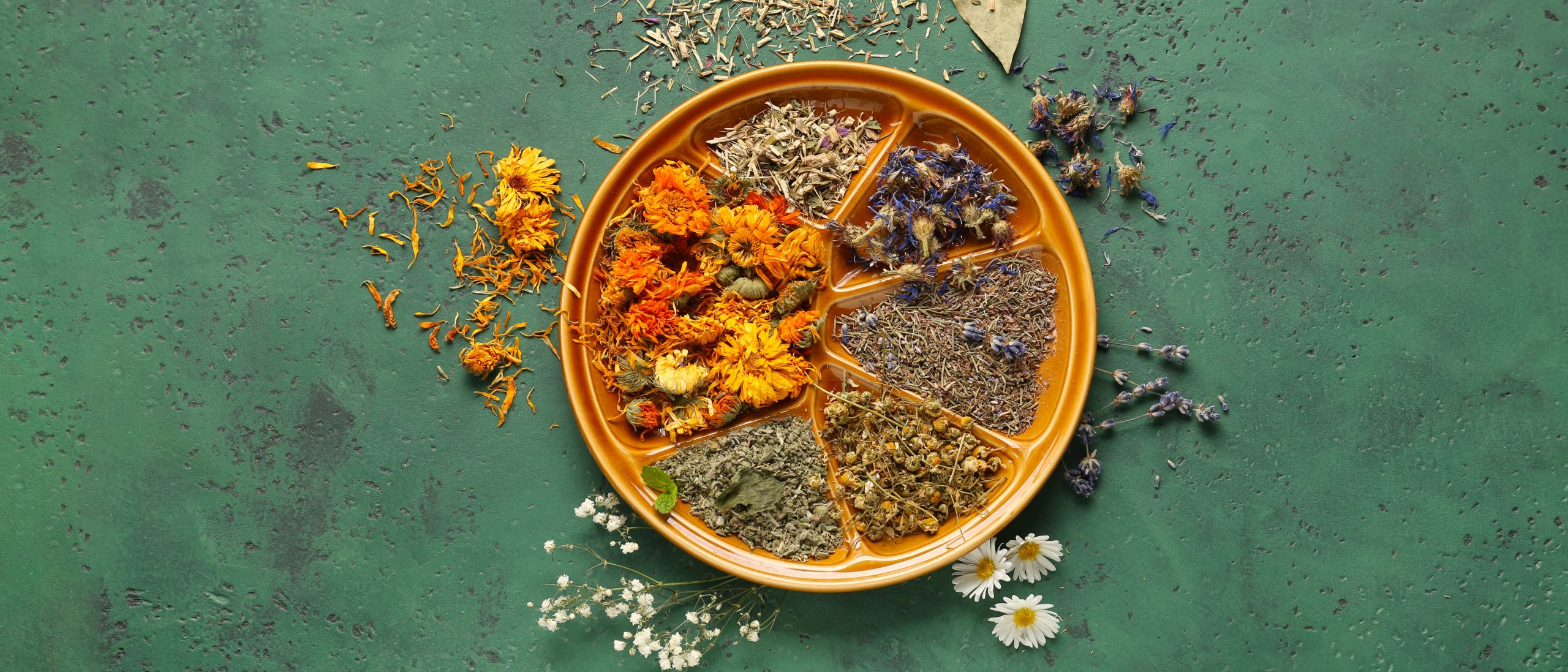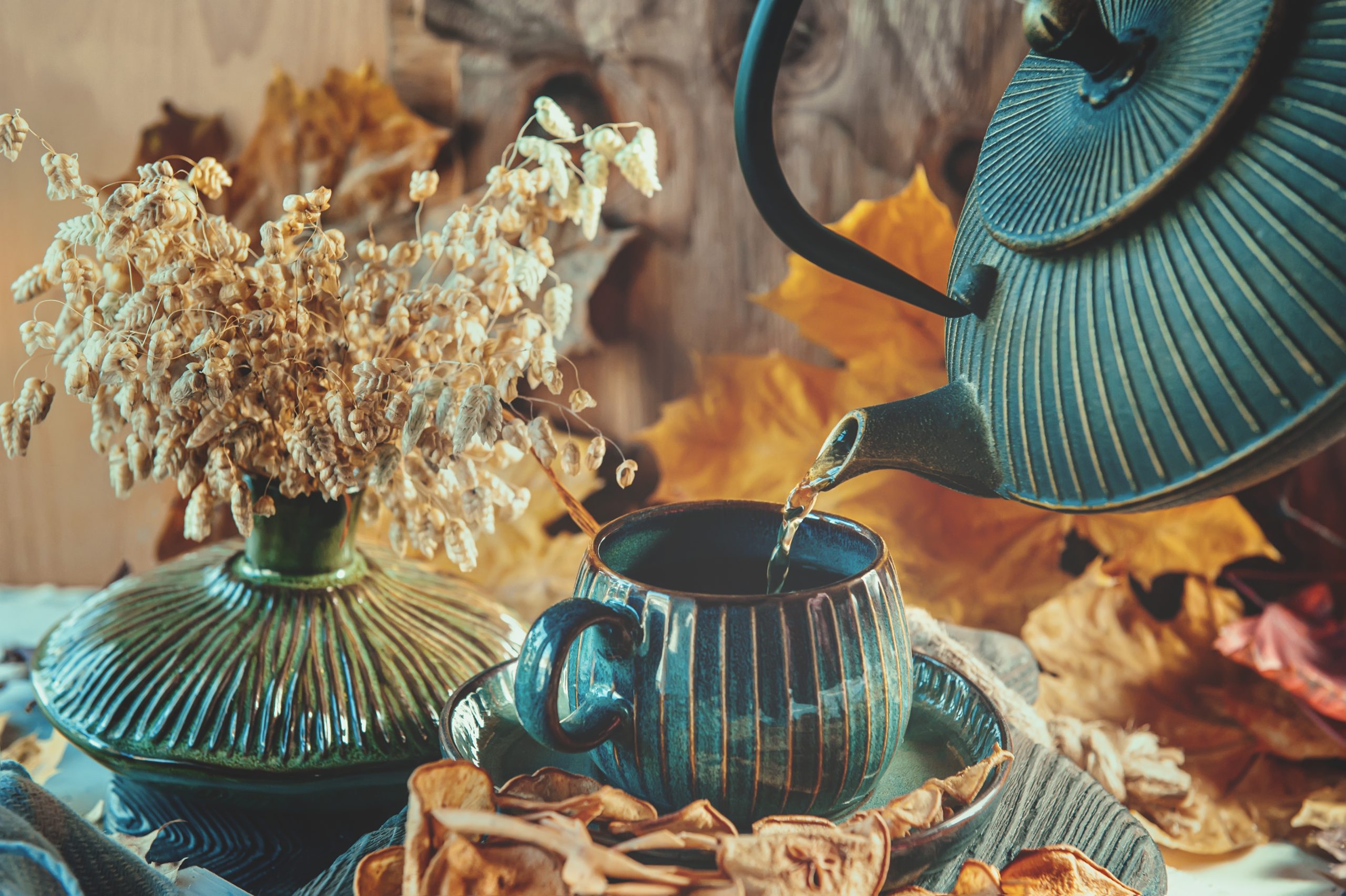Herbal Medicine

The Benefits of Herbal Medicine
What are the basics of Chinese Herbal Medicine?
Chinese herbal medicine, also known as Chinese traditional medicine, is an ancient system of healthcare that has been used for over 2,000 years. It is based on the belief that health and wellness are achieved by maintaining the balance of qi (chi), or life energy, in the body. This ancient science uses plants and their parts such as roots, leaves, stems, bark and seeds to create a variety of formulas. These formulas work to restore balance between yin and yang which helps to treat a range of physical and emotional ailments.
Chinese herbal medicine can be used alone or in combination with other therapies such as acupuncture or massage therapy. There are thousands of herbs used in Chinese medicine, each having its own unique properties that can help to reduce symptoms or improve overall functioning. Common herbs include ginseng, ginger, goji berries and ginkgo biloba.
Herbal medicines are usually made into teas or decoctions (decoctions involve boiling herbs for long periods of time) but they can also be taken as pills, tinctures (herbs soaked in alcohol) or topically applied as poultices or compresses. Many practitioners will create a custom blend of herbs tailored to the individual patient’s condition and needs.
Chinese herbal medicine offers an effective way to treat a wide range of illnesses – from common colds and flu to chronic pain conditions such as fibromyalgia or arthritis– without harsh side effects that often accompany pharmaceutical medications. With its holistic approach it also addresses underlying imbalances in the body helping restore balance which aids in healing on multiple levels – physically, emotionally and spiritually – bringing an overall sense of well-being.

Safety of Chinese Herbal Medicine
The safety profile of Chinese herbal medicine is generally considered to be good when prescribed by qualified practitioners who have an extensive knowledge base about their use. However, it is important to note that some herbs can have serious side effects if taken in large doses or if they are not compatible with certain medications or medical conditions. For this reason, it is important for patients to thoroughly discuss any potential issues with their practitioner before starting treatment.
The primary concern with Chinese herbal medicine is the risk of contamination or incorrect preparation. Many herbs are imported from other countries where growing conditions may vary greatly. As a result, there is a possibility that they could contain pesticides or heavy metals, which could be hazardous if consumed in large quantities over an extended period of time. Additionally, some herbs may be incorrectly identified or prepared due to lack of knowledge on the part of the practitioner or supplier, leading to improper dosage or incorrect ingredients being used in a formula.
Fortunately, there are steps that we take to protect our patients when using Chinese herbal medicine. We only buy products from trusted suppliers who take safety measures such as conducting lab tests and providing certificates confirming the purity and accuracy of their products. Please take a moment to learn more about the safety of our herbal products from Sun Ten and Evergreen Herbs. Secondly, we work together to closely monitor any changes you experience while taking Chinese herbs so that you can quickly address any concerns should they arise.
Common Side Effects of Traditional Chinese Herbal Medicine
The most common side effect from taking Chinese herbal medicine is a shift in digestion/bowel habits. In some cases this is an initial, and temporary, desired effect, and in those cases, we let our patients know what to expect ahead of time. We always keep an open channel of communication when starting a new herbal protocol in case there are questions or concerns. On an extremely rare occasion, a patient will have an allergy to a component in the herbal formula. Besides being a rare occurrence, the allergic reaction has manifested itself as a small patch of hives with no other symptoms. We have never seen any allergic response that would cause a patient to require emergency or non-emergency care.
We also take into account our patient’s history, specifically allergies or sensitivities before starting an herbal program. We inquire about dietary restrictions due to allergies, such as gluten, corn, shellfish, or tree nuts, which can be found in certain herbal formulas. Additionally, we ask if our patients are vegetarian or vegan to respect the diets of each of our patients. Although we don’t often use herbal formulas with animal products, we always make sure to know ahead of time.
Herbal Medicine And Medical Procedures
Our office follows all guidelines set forth by individual practices/medical procedures on the appropriate time to stop or not utilize Chinese herbal medicine. Although there are not hard guidelines set on when to stop herbal medicine, we are aware of general ranges that are appropriate and adhere to them accordingly. For example, due to the risk of bleeding during surgery, or to avoid anesthetic complications, many surgical teams will tell their patients to avoid herbs and supplements for 24 hours to 2 weeks before the surgery to make sure the herbs are no longer affecting chemical reactions on the body.
We also adhere to the guidelines set forth by all fertility clinics during IVF. Once medications start for stims, transfer, priming, or a mock round, we do not utilize herbal therapy, but rather work on diet/lifestyle to help achieve our goals.
What Are Some Common Ailments That Chinese Herbal Medicine Treats?
The efficacy of Chinese Herbal Medicine has been demonstrated in clinical studies which show positive results in treating many common health conditions including:
- Headaches
- Pain relief from menstrual cramps
- Osteoarthritis
- Digestive issues such as irritable bowel syndrome
- Fertility problems
- Skin conditions
- Cardiovascular issues
- Respiratory problems like asthma
- Sinus issues and allergies
- Migraines and Headaches
- Psychological disorders including anxiety and depression
- Chronic fatigue syndrome
- And much more
The World Health Organization recognizes CHM’s effectiveness in treating over 200 different illnesses – making it one of the most widely accepted forms of alternative healthcare around the world today.While more research needs to be done on Chinese Herbal Medicine’s effectiveness in treating certain illnesses – especially those related to mental health – there is growing evidence that supports its efficacy for many ailments. As research continues into this area, more people may find relief from traditional medicine without having dangerous side effects associated with modern pharmaceuticals drugs often taken for these same conditions.
How We Build An Herbal Formula For Your Specific Needs?
Chinese herbal medicine is rooted in a philosophical system of Yin and Yang, the Five Elements, and other complex theories used to explain the properties of various herbs. When it comes to creating a formula from single herbs, doctors must be knowledgeable of each herb’s individual effects on the body and how they work together to synergistically create an effective remedy for the patient.
In traditional Chinese herbalism, herbs are classified according to their energetic effects on the body which helps determine how they should be combined into a formula. Herbs can be used singly or as part of a larger formula; however, when combining multiple herbs together they must be balanced with complementary ingredients. For example, if an herb has a warm energy (think of ginger) it might need another cooler herb in order to balance out its action on the body. Two cold or two hot herbs may not have desired results since they could cause an overly strong reaction in the body and push it to have an opposite symptom. Remember, the goal for herbal medicine is to gently guide your body back to it’s normal physiological state, so balancing the formulas correctly is crucial.
In addition to understanding the yin/yang nature of each herb, Chinese pharmacists look at six categories when creating formulas: flavor, property (temperature), organ meridian affected, direction (whether ascending or descending), energy level (tonifying or dispersing), and category (animal vs. mineral). Each category is important for helping determine whether two different herbs will interact well together.
When it comes down to building formulas from individual chemicals, practitioners should also take into account dosage considerations such as potency and toxicity since these vary greatly among different types of herbs. Regulating strength levels between active ingredients is done by “pushing” one ingredient further with auxiliary components like catalysts that help maximize effectiveness while avoiding any potential side-effects from over-potentiation.
Chinese herbal formulas are often multi-faceted remedies made up of several different types of components including various kinds of roots, barks and leaves that are boiled into teas or decoctions as well as powders made from ground up plants mixed with honey or ground into capsules for easier consumption. Each type provides unique benefits depending on their intended use; for instance teas can provide immediate relief from symptoms while capsules might promote long-term wellness through gradual absorption by the body over time.
Creating an effective formula using single Chinese herbs requires great knowledge and expertise so it is best left to qualified professionals who understand the complexities of combining multiple components together in order to achieve maximum benefit for their patients. From correct dosages and understanding yin/yang energies to knowing which auxiliary ingredients will help support primary elements — all factors must carefully be considered when making up a successful herbal remedy that not only alleviates symptoms but also leads towards long-term health maintenance.

Different Ways Of Ingesting An Herbal Formula?
One of the most common methods of consuming herbal formulas is by drinking tea or other beverages made with the herbs. The herbs can be simmered in hot water for an infusion that can then be sipped slowly over time to reap the benefits. This method works well for chronic conditions such as anxiety or depression, where long-term use of a formula is important.
Another traditional way of consuming herbal formulas is by making them into tinctures or extracts which are concentrated versions of the herbs in alcohol or glycerin. These can be taken directly under the tongue or mixed with food or drinks, making it easier to get a precise dosage. Tinctures are best suited for acute conditions such as infections that require more rapid results than something like an herbal tea would provide.
Capsules filled with powdered herbs are another popular way to consume herbal formulas, as this makes it easy to get a consistent dose from each capsule that contains exactly what was intended. This method is convenient when traveling since there’s no need to prepare a tea or tincture with every single dose.
Herbal formulas may also be applied directly onto the skin through balms and ointments prepared with infused oils made from specific herbs blended with a base oil like coconut oil or olive oil and possibly other ingredients like beeswax or shea butter. Herbal salves are incredibly useful for topical treatments such as rashes, skin irritations, joint pain, muscle aches, etc., because they provide relief without having any internal effect on the body’s systems.
In our office, we commonly use granules to make up our patient’s formulas. Granules are simply ground up herbs which have been cooked ahead of time. We prefer the use of granules for a couple reasons:
- We can modify our formulas for your specific needs, rather than a pre-made bottle of capsules, we can adjust dosages or even add other herbs to your formula for a better therapeutic effect.
- They are easier to take! Just a small amount of warm water two times a day and you are good to go! You don’t have to slowly cook them over the stove like you would with raw herbs, or have to take 11 pills 3 times a day like you would with capsules. Just scoop out the appropriate dosage, add a little warm water, and down the hatch.
